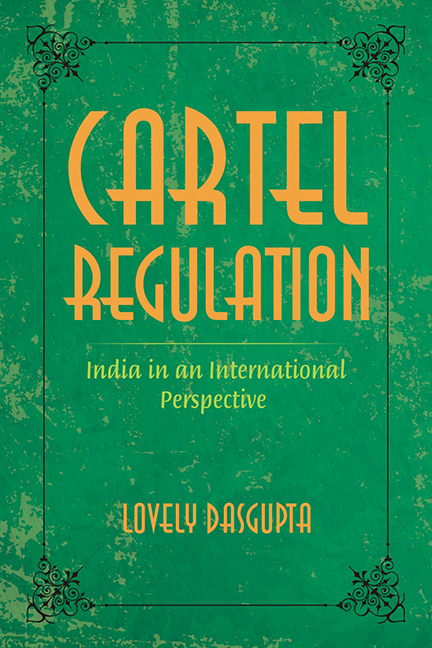Book contents
- Frontmatter
- Contents
- Preface
- Abbreviations
- 1 Introduction
- 2 Cartels: Understanding the Sum and Substance of the Concept
- 3 Cartels and Consumer Interests in the US
- 4 EU, Cartels and Consumer Interests
- 5 India, Cartels and Consumer Interests: The MRTP Phase
- 6 Cartels, Consumer Interests and India Post-MRTP Phase
- Conclusion
- Appendix 1
- Appendix 2
- Bibliography
- Index
2 - Cartels: Understanding the Sum and Substance of the Concept
Published online by Cambridge University Press: 29 November 2022
- Frontmatter
- Contents
- Preface
- Abbreviations
- 1 Introduction
- 2 Cartels: Understanding the Sum and Substance of the Concept
- 3 Cartels and Consumer Interests in the US
- 4 EU, Cartels and Consumer Interests
- 5 India, Cartels and Consumer Interests: The MRTP Phase
- 6 Cartels, Consumer Interests and India Post-MRTP Phase
- Conclusion
- Appendix 1
- Appendix 2
- Bibliography
- Index
Summary
Context
In order to understand why cartels are bad for consumer interests, it is important to first understand the concept of cartels. The conceptual analysis will also give an overview of the socio-political context in which cartels operate. The distinction between cartels and other horizontal agreements needs to be understood. The common law doctrine of restraint of trade is also to be analysed in order to understand the nature of restraint that cartels impose on their members. This will also help in recognizing the difference between freedom to trade versus freedom to contract. However, cartels challenge the efficacy of this doctrine. In addition, the doctrine is also inadequate to protect the consumer from the harm caused by cartels. The mapping of the drawbacks in the doctrine of restraint of trade vis-à-vis cartel conduct will help explain the same. The question of ancillary restraint as distinguished from naked restraint also gets addressed in the process. The argument that the co-conspirator is in pari delicto, i.e., both the parties to the agreement are equally guilty, has also been dealt with. Furthermore, the difficulty that a consumer faces in overcoming the problem of privity of contract while challenging a cartel activity is nuanced herein. In this context, the chapter highlights the arguments that justify a pro-consumer approach in anti-cartel regulation. By doing so, the chapter looks into both the legal and economic understanding of cartels.
Concept of cartels
The conceptual analysis of a cartel needs to be first done at the definitional level. This will help in distinguishing between cartels and other types of cooperative arrangements. Oxford's Advanced Learner's Dictionary defines cartel as:
‘a group of separate companies that agree to increase profits by fixing prices and not competing with each other’.
Black's Law Dictionary defines a cartel as:
‘[a] combination of producers or sellers that join together to control a product's production or price; [a]n association of firms with common interests, seeking to prevent extreme or unfair competition, allocate markets, or share knowledge’.
Harding and Joshua state:
‘The word cartel has a complex etymology. The basis of its modern usage is in the idea of a suspension of hostilities (or, by analogy, rivalry)’.
- Type
- Chapter
- Information
- Cartel RegulationIndia in an International Perspective, pp. 12 - 45Publisher: Foundation BooksPrint publication year: 2014



